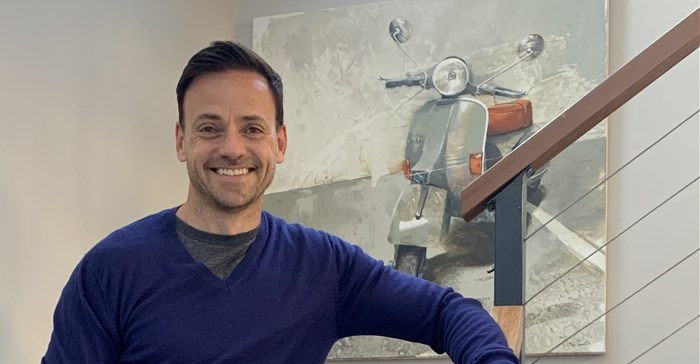For the past 50 years, the primary role of business in society has been to maximise shareholder return, a consequence of Milton Friedman's seminal article in the New York Times in 1970 in which he stated that "any other use of shareholders money was irresponsible". Given the current state of the world, with climate change, global warming, depletion of our natural resources, over population, catastrophic pollution and growing inequality to name a few, it feels like the idea of business being a force for good, and playing a bigger role in society beyond financial maximisation, is the obvious thing to do.

Mike Middle, partner, Innate Motion
Unfortunately, many business leaders don’t see it this way.
The world of business is about making money and “purpose” is often seen as getting in the way of making money. It’s perceived to be a “feel good” distraction that takes the eye off the ball, costs money, and erodes the carefully crafted and sought-after profit number. This number is the sole purpose many businesses exist, and it is the most significant factor that business leaders are judged on. So, when business leaders see the word “purpose”, their immediate assumption is that it is going to cost them money, making their profit number that much more difficult to achieve.
This is where they are wrong
Simon Sinek, in his book The Infinite Game, discusses the difference between leaders with an “infinite” mindset versus those with a “finite” mindset. The basic premise is that a business should have the intent of “playing for the long term” and playing for the long term requires an infinite mindset. He argues that the game of business fits the definition of an infinite game, in that there is no predetermined beginning, middle or end. Although certain time frames are agreed for evaluating performance, those time frames merely represent markers in the course of the game, but not the end of the game itself, because the game of business has no finish line. Sinek goes on to argue that to succeed in the “infinite game of business”, we have to stop thinking about who wins and who’s the best and start thinking about how to build organisation’s that are strong and healthy enough to stay in the game for generations to come. Strong and healthy businesses – those that are playing for the long term - are not defined by their quarterly sales metrics. They’re defined by an innate purpose, or reason for being, that is a guiding light for every action, behavior and decision that a business takes. This purpose reminds all stakeholders why they are in business and what their bigger role in society is, beyond financial maximisation.
The Patagonia experience
Patagonia, the American clothing company that markets and sells outdoor clothing, is driven by a purpose to “use business to inspire and implement solutions to the environmental crisis”. In pursuit of this purpose, they make “timeless” clothing that doesn’t need to be replaced regularly, they repair clothes for free, share the blueprints for environmentally friendly materials with their competitors, will take back clothes at the end of their life to be recycled, and partner with eBay to enable the re-use of their clothing through second hand buying and selling.
The company acknowledges that making money is important because the more money they make, the more they can pursue their purpose, and the more they pursue their purpose the greater the impact they can have on the world. As a consequence, they will not sacrifice the pursuit of their purpose for enhanced financial gain. And yet, their pursuit of this purpose has created an extremely strong fan base of loyal customers and employees that share the same ethos, values and vision and this has made them one of the most desirable clothing brands in the world, which has had a far bigger impact on their growth and revenue performance than if they had followed a finite mindset blindly chasing quarterly sales targets.
Impact of Covid-19
Covid-19 has highlighted the destructive influence that man has had on our planet and there is more awareness than ever that things needs to change. Prior to the pandemic, consumers were already demanding that companies and brands play a bigger role in society beyond financial maximisation and were increasingly putting their money where their mouth is and supporting brands and companies that were seen to be doing good. Post the pandemic, momentum behind this cause is going to accelerate and businesses will no longer have the choice of deciding whether or not they want to become more purposeful. Consumers will force change with their wallet, supported by governments around the world that are already starting to legislate business policies where business success is evaluated on its profit and people and planet impact.
The time for deciding between purpose or profit is long gone. The future of business success lies in figuring out how to do purpose and profit.



















































